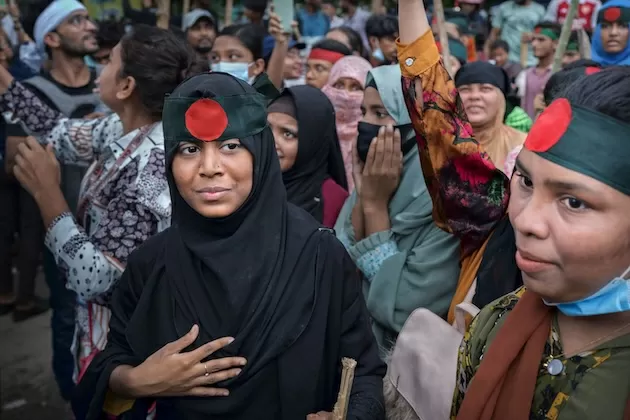Justice for all those who died and suffered injuries during the recent student-led quota reform movement in Bangladesh is not negotiable. This was the resounding message delivered by Syeda Rizwana Hasan, an adviser to the Bangladesh interim government, in an exclusive interview with IPS. The recent quota reform movement, led by students, has brought to light the urgent need for justice and reforms in Bangladesh.
The quota reform movement, which began in February 2018, saw students take to the streets and demand an end to the quota system in government jobs. Under this system, a certain percentage of jobs in the civil service are reserved for different groups based on ethnicity, religion, and gender. This system has long been criticized for its lack of transparency and fairness, often leading to discrimination and hindering merit-based hiring.
Unfortunately, the movement turned violent when the police used excessive force, resulting in the deaths of several students and injuries to many more. This sparked widespread outrage and further fueled the demands for justice and reforms.
In the interview, Syeda Rizwana Hasan emphasized the importance of delivering justice for all those who lost their lives or were injured during the quota reform movement. The interim government has recognized the need for accountability and has taken the necessary steps to ensure that those responsible for the violence are held accountable. This is a crucial step towards providing closure and justice to the families of the victims.
Moreover, the interim government has also acknowledged the need for reforms in the systems to prevent such incidents from happening in the future. One of the proposed reforms is the complete revocation of the quota system in government jobs. This move has been met with mixed reactions, with some arguing that the quota system is necessary for promoting diversity and inclusivity in the workforce. However, Syeda Rizwana Hasan believes that a fair and transparent hiring process, based on merit, is the key to promoting diversity and inclusivity.
In addition to revoking the quota system, the interim government is also taking steps to curb police brutality and ensure the protection of citizens’ right to peaceful protest. This is a much-needed measure in a country where police brutality is a pervasive issue. The interim government has also promised to hold accountable those responsible for the excessive use of force during the quota reform movement.
Syeda Rizwana Hasan also stressed the need for citizen participation in bringing about these reforms. She urged the people of Bangladesh to continue to peacefully demand justice and accountability, and to actively engage in the process of reforming the systems. This is a crucial aspect of building a more just and equitable society.
The recent quota reform movement has highlighted the urgent need for justice and reforms in Bangladesh. The interim government’s commitment to providing justice for the victims and bringing about necessary reforms is a positive step towards building a better future for the country. It is also a testament to the power of citizen action in effecting change.
The road to justice and reform may not be easy, but it is a necessary one. As Syeda Rizwana Hasan stated in the interview, “Justice is not something that can be compromised. It is a fundamental right of every citizen.” The people of Bangladesh have shown remarkable resilience and determination in their pursuit of justice, and it is the responsibility of the government to ensure that this justice is delivered.
In conclusion, the recent student-led quota reform movement in Bangladesh has brought to light the pressing need for justice and reforms. The interim government’s commitment to addressing these issues is a positive step towards building a more just and equitable society. It is now up to the people of Bangladesh to continue to demand justice and actively participate in the process of reforming the systems. Together, we can build a better future for our country.



